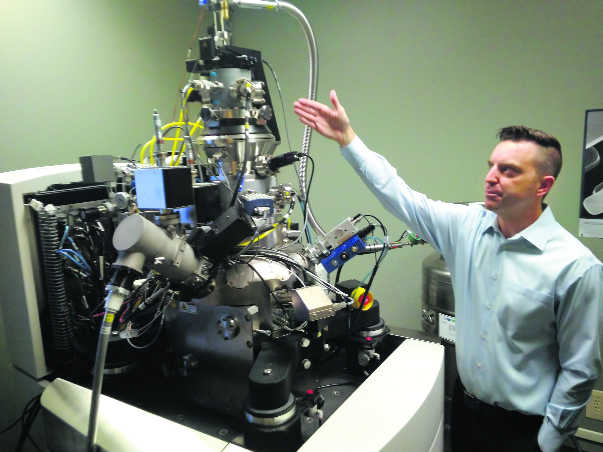
Pankaj Vasudeva
From understanding the intricacies of nanotechnology to exploring a career in real estate, Canadian universities have a wide spectrum of specialised programmes for undergraduates, graduates and researchers. These inter-disciplinary programmes provide an additional skill-set to students to take up challenges in the respective industry.
NanoFAB
The Electrical and Computer Engineering Research Facility at University of Alberta's Faculty of Engineering has a one-of-its-kind NanoFAB (Fabrication & Characterisation) Centre. This open-access facility provides equipment, infrastructure and expertise to students and researchers from different faculties. Companies engaged in R&D also utilise equipment and infrastructure worth $110 million at the facility.
The university and National Research Council of Canada (NRC) have partnered to launch UAlberta/NRC Nanotechnology Initiative for research, discovery and innovation in the field.
The centre focuses on training and helping students in their undergraduate, Master's and PhD programmes by providing them with crucial data.
Streams to choose from:
Undergrad nano specialisation programme (one-year): Computer Engineering: Nanoscale System Design; Electrical Engineering: Nanoengineering; Engineering Physics: Nanoengineering.
Eligibility: Five high school subjects — English, Maths, Maths (Calculus), Chemistry, Physics. All students study common courses in the first year. Admission to second-year specialisation and degree routes is determined through preference, grade point average (GPA), and course load, calculated at the end of first year.
Forestry
Given Canada's rich biodiversity, its universities lay special emphasis on the management and conservation of natural recourses, especially forests. Jorma Neuvonen, Director, Special Projects, says, finding ways to convert trees and biomass into materials that can be used in everyday life is essential to reduce carbon footprint.
"Research is on to explore the utility of nanocellulose (wood extract at nano scale) especially in the construction industry given that it is stronger than steel," he says.
As part of the initiative, the University of British Columbia runs five undergraduate programmes ranging from forest conservation to wood products processing. University's Advanced Wood Processing Centre gives students a hands-on experience in processing wood and creating things of different shapes and sizes.
Courses on offer:
Undergraduate: BSc in Natural Resources Conservation, BSc in Forestry, BSc in Forest Sciences, BSc in Wood Products Processing and latest inclusion Bachelor of Urban Forestry
Graduate: Research-intensive degrees: PhD; Master of Science in Forestry; Master of Applied Science in Forestry
Professional programmes: Master of International Forestry; Master of Sustainable Forest Management; Master of Forestry.
Eligibility: Undergraduate: Class XII in science stream; Graduate: Four-year bachelor's degree in engineering, forestry or medicine; PhD: Bachelor's degree plus Master's degree or MPhil degree.
Real Estate
Despite an industry with burgeoning demand for trained professionals, only a handful of country's management institutes offer courses to cater to the needs of real estate. Canadian universities have taken the lead in starting real estate programmes both at undergraduate and graduate levels. Westman Centre for Real Estate Studies at the Haskayne School of Business, University of Calgary, is one such inter-disciplinary initiative where students can take up real estate studies as BCom concentration or MBA specialisation.
Options at hand
The undergraduate programme is a capstone course involving real estate finance, planning and development, finance, legal, marketing, etc. BCom students can study real estate concentration in the third and fourth years, while MBA students can choose their specialisation in the second year.
A peek into some specialised programmes offered by Canadian varsities
NAIT Simulation Centre
- The Simulation Centre at the Centre for Applied Technology in Northern Alberta Institute of Technology (NAIT), Edmonton, creates real-life situations in a controlled environment to impart hands-on training to students.
- Students pursuing diploma courses such as Emergency Medical Technician (EMT) and Veterinary Medical Assistant are put through simulation exercises using high-fidelity mannequins, which can blink, breathe, cry, move to get a hands-on experience.
- Apart from a driving simulator, the centre has nine specialised theatres with real equipment to simulate settings such as clinics, office, hospital wards, etc.



























